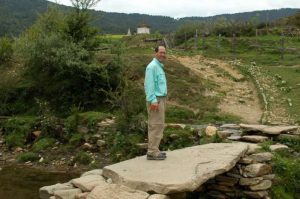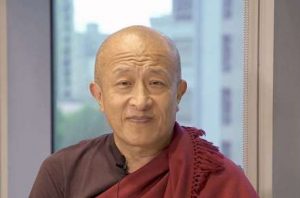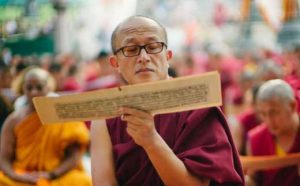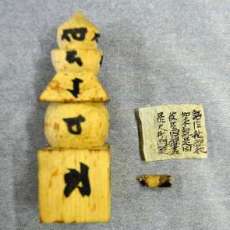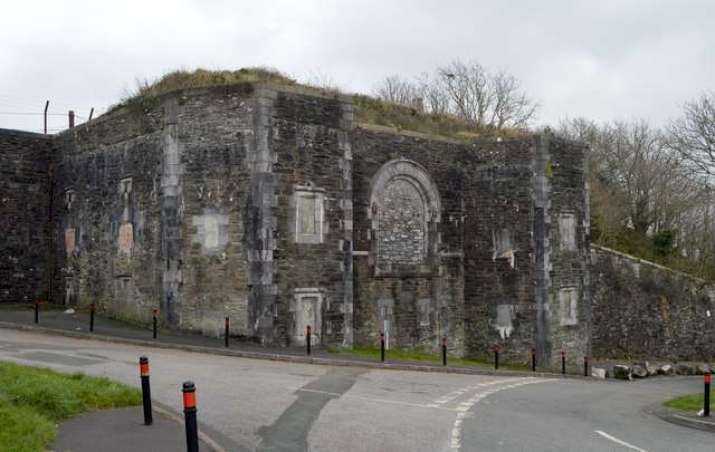
Plans are underway to convert the rundown 19th century Austin Fort in the southwestern English port city of Plymouth into a Buddhist center for the local Buddhist community, including accommodation for monastics.
According to media reports, planning permission has already been sought from the city council by Le Page Architects, a company commissioned by the Thai British Buddhist Trust and the Thai Buddhist Community of Plymouth in March 2017.
According to the application, the site will include accommodation for at least five monks, a chanting room, a meeting space, education space, and an office, with plans to eventually build a traditional Thai temple at the site. The grounds will also allow for religious festivals and events to be staged, as well as gardens for cultivating fruit and vegetables.
According to the planning application filed with the city council: “The Thai community in Plymouth and the southwest currently use small rented premises in Plymouth. The building is not large enough for the numbers who attend and is located in a residential area with no dedicated parking which is problematic.” (Plymouth City Council)
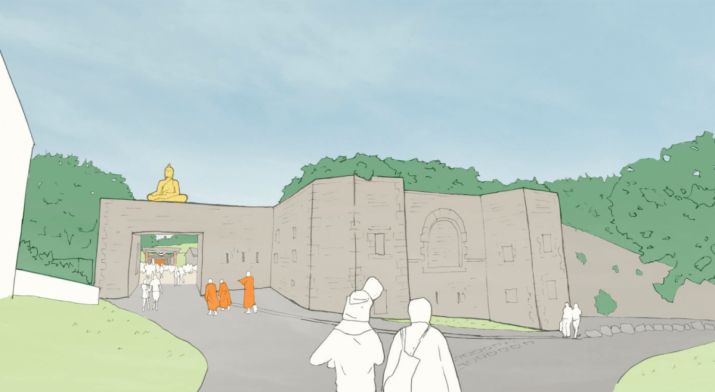
“The works proposed are to facilitate a change of use on the site to accommodate limited residential and religious use of the site. The works will also decrease the risk of anti-social behavior for local residents around the fort, and reduce the risk of damage to the historic fabric and archaeological stratigraphy of the monument.” (Plymouth City Council)
Local police have reported that the unused fort has become a gathering point for young people, and that evidence of illicit drug use had been found at the site. The city hopes that the planned temple will discourage antisocial behavior in the area as well as avert further damage to the historic building.
“It’s not really the fact that they’re causing antisocial behavior for others because it’s so remote people aren’t going to know it,” a local police officer explained. “But if something goes wrong for the kids when they’re in these tunnels, or if they’re in a den in the middle of the woods, it’s going to be very difficult for anyone to know what’s going on or where they are or to get to them in a hurry if they need to.” (PlymouthLive)
Media reports indicated that the Thai British Buddhist Trust has already agreed lease hold terms with the city council and that the planned development of the site will exclude changes to the fort’s historic guardhouse as well as rock-cut defenses, counterscarp gun casemates, and galleries.
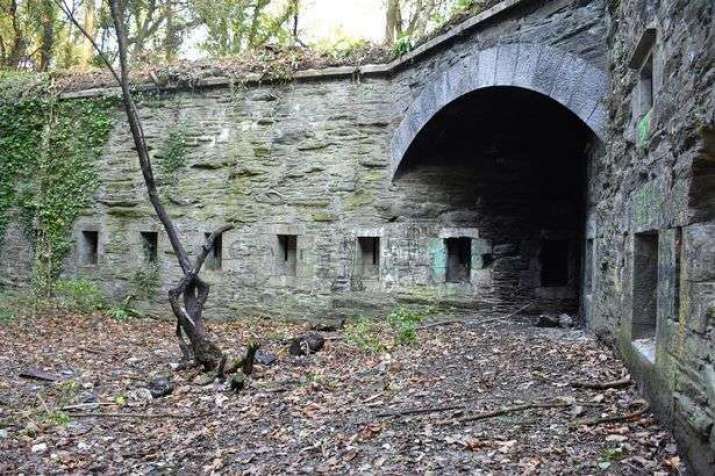
According to the planning application: “Every day of the year between one and 20 Thai community [members] will attend the temple to chant with the monks. . . . A social event will follow and generally the Thai community will leave by 3pm, unless they decide to stay and help the monks.” (Plymouth City Council)
The application indicates that four large events will be held at the site each year: in April, Songkraan, the Thai New Year, with some 100 attendees; in May, Visakha Puja, or Vesak, with 60–80 attendees; in August, the Thai queen’s birthday with 60–80 attendees; and in October, the Khatina robe-offering ceremony with 60–80 attendees.
“As well as the four largest events of the year as outlined above, there could be some smaller events such as chanting or meditation classes. These will be open to the whole community. The monks will also be offering bereavement counseling,” the planning application adds. (Plymouth City Council)
“This proposal will result in the fort being a beneficial new use for Thai British Buddhist Trust as well as welcoming [the] wider community of Plymouth and the southwest region,” the planning application states. “These will be a new presence with monks living onsite. The site will not undergo major change except to improve the area contained within the leasehold area. Gardens will be created and transform this currently vandalized and unsafe site for a new future.” (Plymouth City Council)
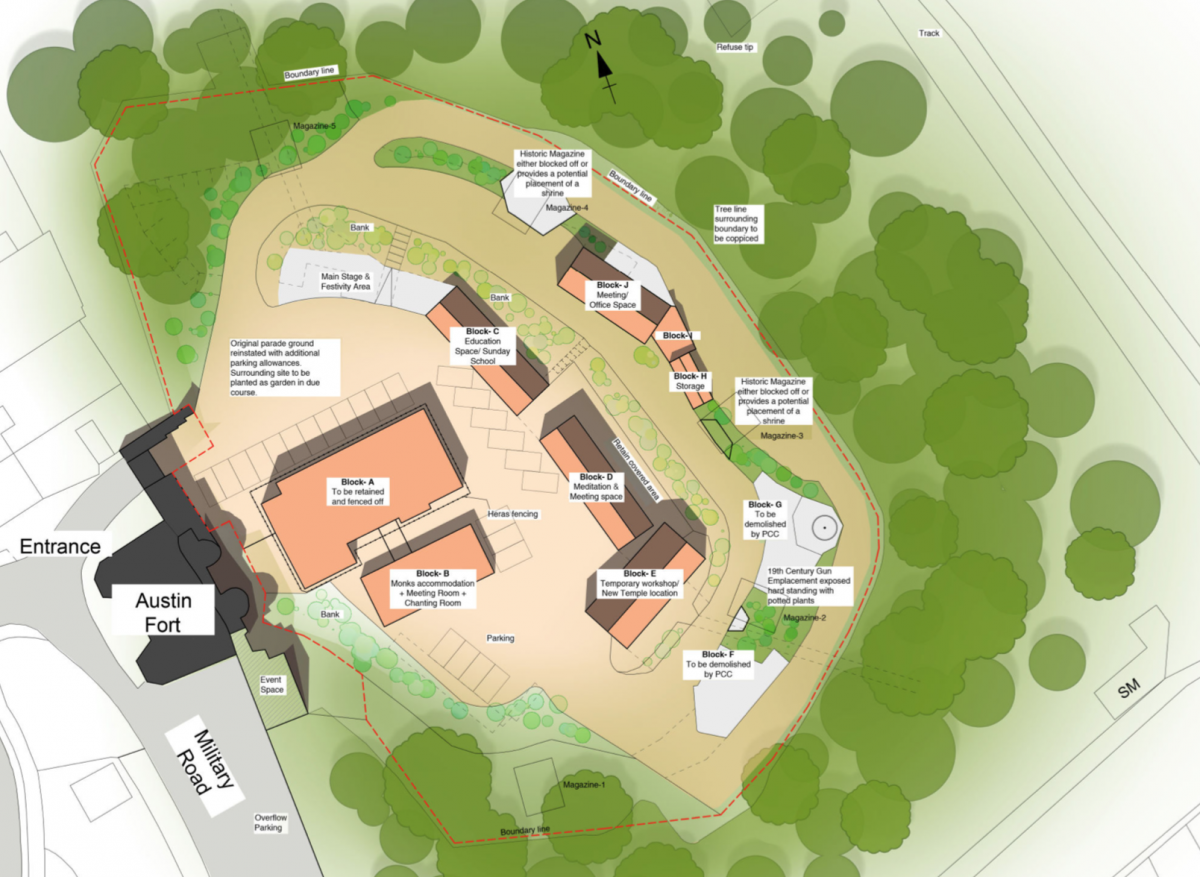
Austin Fort, in the Plymouth suburb of Eggbuckland, is a 19th century fort and battery, construction of which was undertaken from about 1863 amid fears of an invasion from France. Completed shortly after 1868, the structure was designed to accommodate 15 guns and five mortars, with five earth traverses containing magazines. The site has two vaulted chambers, intended to house 32-pounder guns, connected via tunnels. The site was still in use during World War II, and in 1958, the fort was handed over to Plymouth City Council by the Ministry of Defence. In 1984, the guardhouse was converted to the Plymouth City Emergency Centre for Civil Defence, and was eventually vacated in April 2017.
See more
Old fort in Plymouth to be turned into huge Buddhist temple (PlymouthLive)
The dangerous Plymouth tunnels youths were taking drugs in (PlymouthLive)
Planning – Planning Application Documents (Plymouth City Council)
Wat Mahathat UK (Thai British Buddhist Trust)









